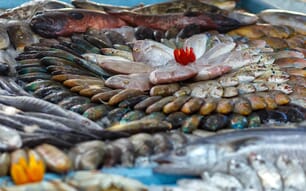This is the view of the Scottish Fishermen’s Federation (SFF) who fear that choke species – fish where all quota has been fully utilised - have the potential to close fisheries down early. This is likely to be a particular problem in demersal mixed fisheries where a variety of species are caught at the same time.
Under such a scenario, if a species with a low quota, for example hake, has its allocation fully taken, boats will not be able to carry on fishing despite having plenty of quota left for other species such as haddock. Economic impact assessments from Seafish have found that this could lead substantial losses in revenue for the fleet unless the issue is addressed.
Bertie Armstrong, chief executive of the SFF, said: “Choke stocks have the potential to do immense harm to the fishing industry, yet we still have no adequate solution to overcome this problem.”
The way a choke stock closely a fishery down can come in a variety of guises and complexities. For example, although one country may have used up all its allocation for one species, there could still be plenty of the quota left in the wider pool held by other member states. Yet in such a situation, a member state with quota left would be reluctant to cede any of its quota share to another.
Such issues will be examined at an ‘Access to Quota’ Workshop being held in Edinburgh this Thursday and Friday (14 and 15 April) that will involve Marine Scotland, regional fisheries advisory councils and the EC.
Bertie Armstrong said: “No-one hates discarding more than our fishermen, but this is just one of the consequences of having a largely unworkable management regime foisted upon the industry without any due consideration of the impact it will have on the fishing fleet.
“This is why it is so important that the discard ban is managed in a commonsense manner where initiatives are developed to address choke points created by low quotas and data-poor fish stocks. With an increasing number of species coming under the umbrella of the discard ban over the coming years, we need decisions soon so as to take away the cloud of uncertainty hanging over our fishermen.”


